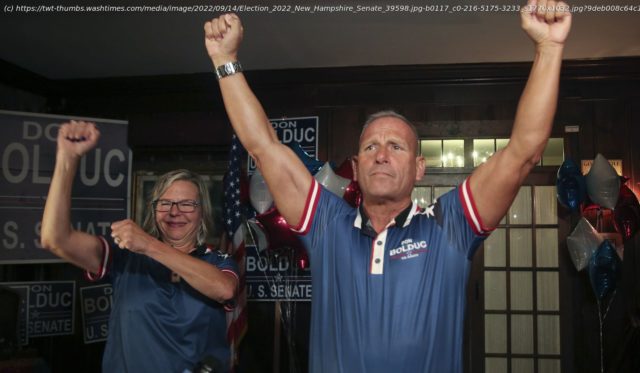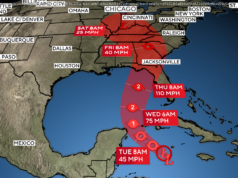Array
The Republican contest for Senate in New Hampshire remained a tight race early Wednesday between conservative Donald Bolduc and the more moderate Chuck Morse as the final primary night of the midterm season again tested the far right’s influence over the GOP.
Republicans see Democratic incumbent Sen. Maggie Hassan of New Hampshire as beatable in the general election, now just eight weeks away. But a strong competitor in the GOP contest is Bolduc, a retired Army brigadier general who some in the party believe is too far to the right for some swing voters in the general election. Morse, the president of the state Senate, has been backed by the Republican establishment.
New Hampshire’s Senate seat could prove pivotal for whichever party controls the chamber after November. President Joe Biden carried the state by more than 7 percentage points and Bolduc has campaigned on a platform that includes lies that Donald Trump won the 2020 election and conspiracy theories about vaccines.
Hassan clinched her party’s nomination against only token opposition while Gov. Chris Sununu won the Republican party’s nomination for another term. He’s heavily favored against Democrat Tom Sherman, who was unopposed for his party’s governor’s nomination.
Sherman, a state senator and physician, was quick to remind voters that Sununu signed a late-term abortion ban into law last year. “As governor I will stand up for our freedoms and protect a woman’s right to choose, not cave to extremists like Chris Sununu,” he said.
Sununu countered in a statement that the “stakes are too high this November to change direction now.”
Still, a Bolduc victory might reignite disappointment among some national Republicans that Sununu, a relatively popular moderate who likely could have posed more of a threat to Hassan, chose instead to run for reelection. The GOP is grappling with the possibility of again nominating a candidate who is popular with the party’s base but struggles to broaden support ahead of the November general election.
Republican primary voters have similarly chosen conservative candidates this year in moderate or Democratic-leaning states including Massachusetts and Maryland, potentially putting competitive races out of the party’s reach.






